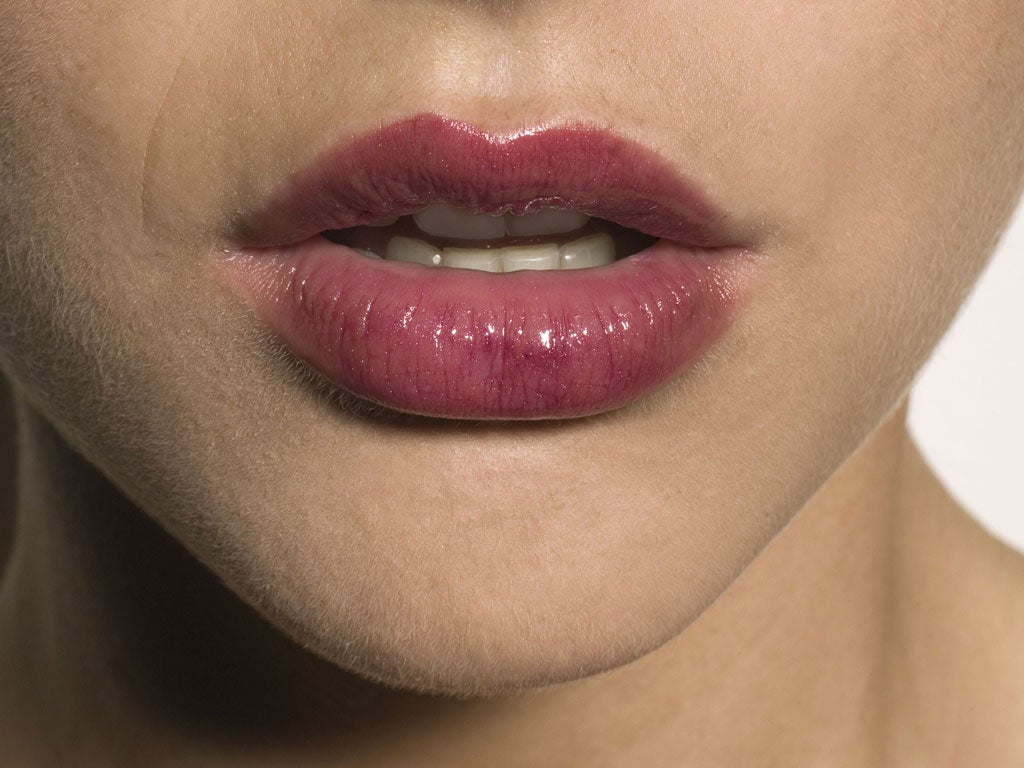Lip-reading: Watch this space
Misbehaving footballers have made lip-readers of us all lately, but there's still nothing like a professional

Your support helps us to tell the story
From reproductive rights to climate change to Big Tech, The Independent is on the ground when the story is developing. Whether it's investigating the financials of Elon Musk's pro-Trump PAC or producing our latest documentary, 'The A Word', which shines a light on the American women fighting for reproductive rights, we know how important it is to parse out the facts from the messaging.
At such a critical moment in US history, we need reporters on the ground. Your donation allows us to keep sending journalists to speak to both sides of the story.
The Independent is trusted by Americans across the entire political spectrum. And unlike many other quality news outlets, we choose not to lock Americans out of our reporting and analysis with paywalls. We believe quality journalism should be available to everyone, paid for by those who can afford it.
Your support makes all the difference.Read my lips, said the former US president. Long after George Bush Snr left the world stage, we are taking his words to heart. With an army of fans wanting to know precisely what was said by John Terry, who is alleged to have racially abused QPR's Anton Ferdinand on the pitch, everyone's a lip-reader. The England captain denies the claims. But, increasingly, we are turning to professionals who can tell what is being said without hearing a word.
From furnishing media outlets with titbits from private conversations at the royal wedding to interpreting what footballer Carlos Tevez told Manchester City manager Roberto Mancini during the club's Champions League match with Bayern Munich, forensic lip-readers are being called upon to help interpret public events. Tina Lannin, a lip-reader for O'Malley Communications, who was born deaf and relies on lip-reading for communication, is among the experts to benefit from this rise in demand: she now receives inquiries every week for her services, with calls coming in from across the globe. She says the increase in work is down to technological advances, such as better CCTV, more cameras and a high level of publicity given to the skill recently.
For many of the estimated nine million people in the UK who are deaf or hard of hearing – equivalent to one in seven people – lip-reading is a vital communication skill. Lip-readers are able to understand what people are saying by interpreting movements of the face, jaw and tongue and shapes made by the lips, as well as taking into account factors such as body language and context.
However, only 30 to 40 per cent of speech is actually "lip-readable", according to Ms Lannin, as many shapes are made inside the mouth or throat and it is possible different lip-readers will pick up different meanings. It is therefore best practice to have more than one lip-reader working on a clip.
"Lip-reading for a court requires meticulous record-keeping, from the moment an inquiry is received, with a lengthy and detailed written report submitted to the court, supported by cross-examination from the opposing side," explains Ms Lannin, a qualified teacher of lip-reading to adults and a deaf-awareness trainer who has been working as a forensic lip-reader for eight years. She can lip-read English, Japanese, German, Spanish and Arabic. "Lip-reading for the media requires a fast turnaround and willingness to lip-read colourful language. Lip-reading socially often involves 'live' lip-reading and reporting at an event, or lip-reading a video recording of an event."
Such expertise comes at a price: forensic lip-readers charge in the region of between £40 and more than £100 for an hour, or about £600 for a full day covering something such as a sporting event or the royal wedding.
Yet, despite the growing exposure of lip-reading as a commercial skill, the provision of lip-reading classes is falling. According to the national charity Action on Hearing Loss, which launched the Read My Lips campaign urging the Government to recognise lip-reading as a valuable skill, the number of classes in England fell by 8 per cent this year compared with 2010. There was also a 10 per cent decrease in learners. In June last year, there were 451 classes in England and Wales, with an estimated 4,739 learners. A separate report suggested there were 63 lip-reading classes in Scotland, with an average of 11 people per class.
Action on Hearing Loss claims one in five lip-reading classes in England and Wales is under threat in the next 12 months, with the cost of classes predicted to rise to £240 a year.
Increased fees, prompted by a lack of funding, are being blamed for the decline. Since 2005, the Skills Funding Agency (then the Learning and Skills Council), has classified lip-reading as a leisure activity. In May this year, Ian Lavery, the Labour MP for Wansbeck, introduced a Private Member's Bill requiring lip-reading "to be classed as an essential skill for the purpose of skills funding". The Bill is due to have its second reading in the House of Commons next month.
Join our commenting forum
Join thought-provoking conversations, follow other Independent readers and see their replies
Comments